Southwest Michigan field crops update – May 16, 2024
Storm cleanup and pivot repairs continue from last week. Frequent precipitation slows field work. Wheat hits Feekes 10.5.

Weather
Cleanup and repairs from the storms early last week continue. This past week, the soil continued to warm, and the accumulation of degree-days shows that we are still about 10-14 calendar days ahead of normal from the warm spring. Tonight, May 16, will see some scattered showers with low predicted precipitation (less than 0.25 inches). The weather forecast calls for a warm and mostly dry weekend followed by a large rain event early next week, predicted at 0.5–1 inch of precipitation.
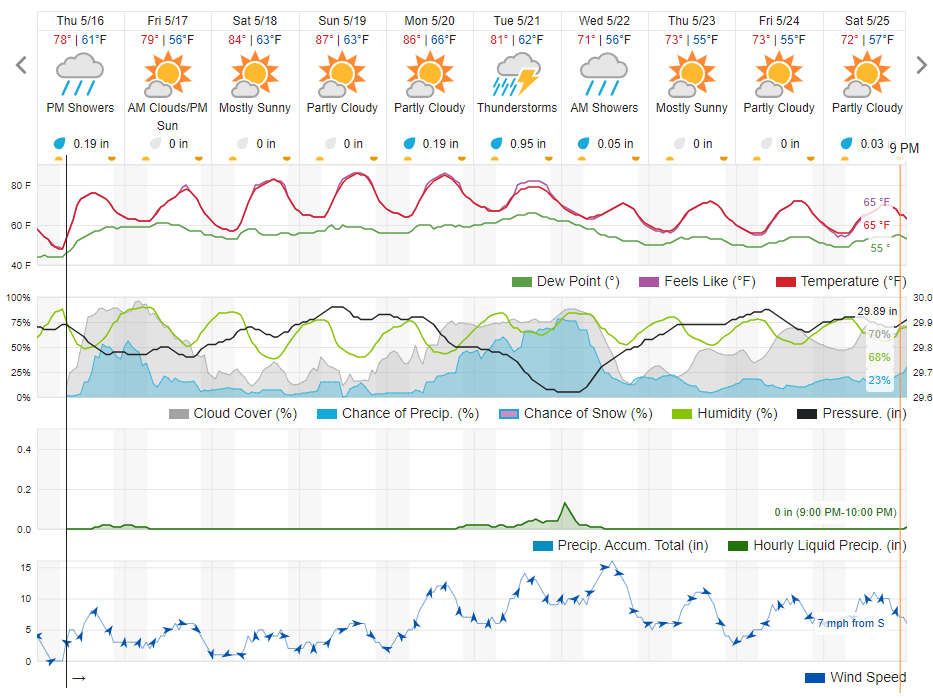
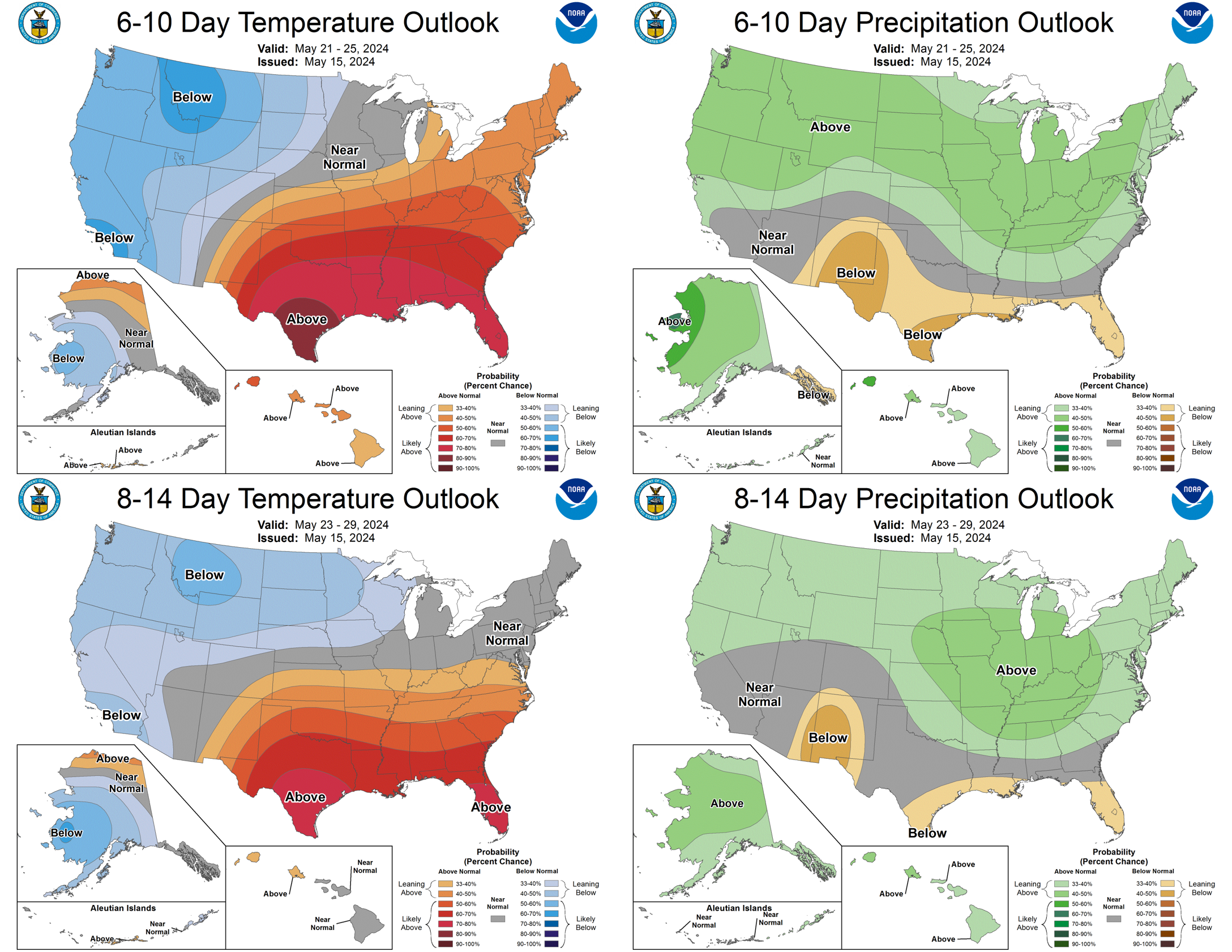
Crops and pests
Soybean and corn planting was slow this week due to frequent rainfall. As of May 12, the United States Department of Agriculture National Agricultural Statistics Service reports that 26% of corn and 22% of soybeans have been planted. This is behind the five-year average for both crops. However, in his article “The Planting Date Conundrum for Corn,” R.L. (Bob) Nielsen of Purdue reminds us that yields are not based solely on planting date. He wrote, “’Mudding in’ a crop early to avoid planting late will almost always end up being an unwise decision.”
Fields planted earlier have continued to emerge and progress. Seedcorn maggot has caused significant damage to some soybean fields in southwest Michigan. Michigan State University Extension insect specialist Chris DiFonzo outlined perfect conditions for seedcorn maggot as “tillage plus freshly decaying green stuff plus slow emergence.” Enviroweather has a seedcorn maggot model, which can be used to predict the severity of damage we’ll see now and in the coming weeks.
DiFonzo recommends that producers who replant after seedcorn maggot forego the insecticide seed treatment, as the green matter is drier and less attractive now, and the warmer soil conditions will contribute to faster emergence. Cutting damage from black cutworm is another thing to be scouting for. Fields with heavy winter annual weeds that were recently sprayed are at higher risk for black cutworm.
Winter wheat heads have fully emerged, entering Feekes stage 10.5. The fields have been quite wet for the past couple weeks, and that is expected to continue. This has affected some flag leaf fungicide applications and may require fungicides at flowering to be flown on rather than applied through a ground rig. Flowering is just starting in a small percentage of some fields. Right now, the forecasted head scab risk is low, but states to the south of us are at higher risk, and that risk is expected to move northward. Light powdery mildew and aphid pressure continues in heavier soils.
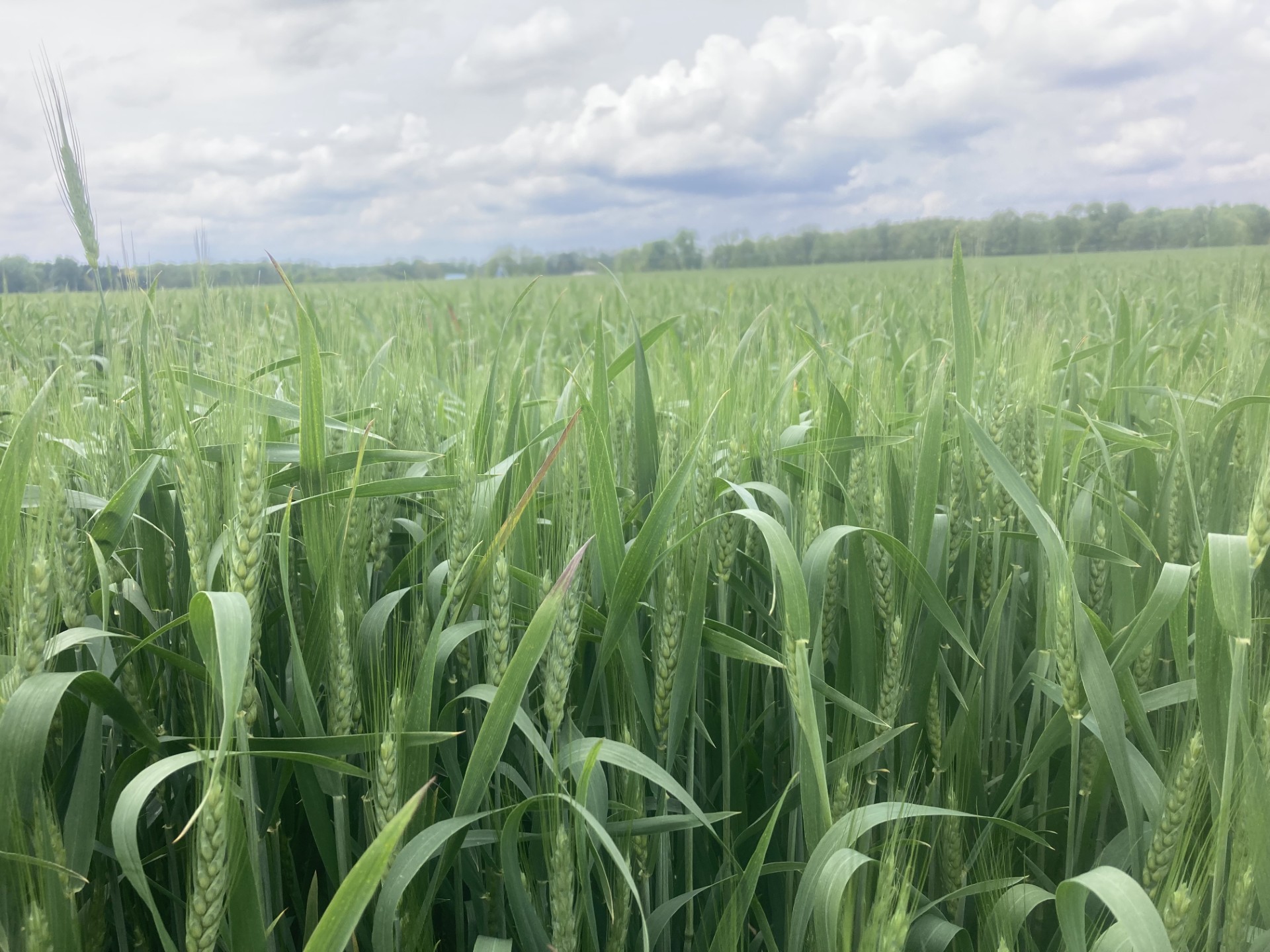
Potatoes continue to emerge and progress. Some producers have finished planting, but others are still waiting out the weather to finish planting all their acres. Insecticide seed treatments on early planted potatoes are nearing the end of their effective control period, so Colorado potato beetle should start soon. Historically, the first surviving egg mass on neonic treated potatoes has been found around the first week of June in the earliest planted potatoes. Scout for potato beetle by watching for feeding on young and emerging leaves and checking leaf undersides for the orange egg masses.
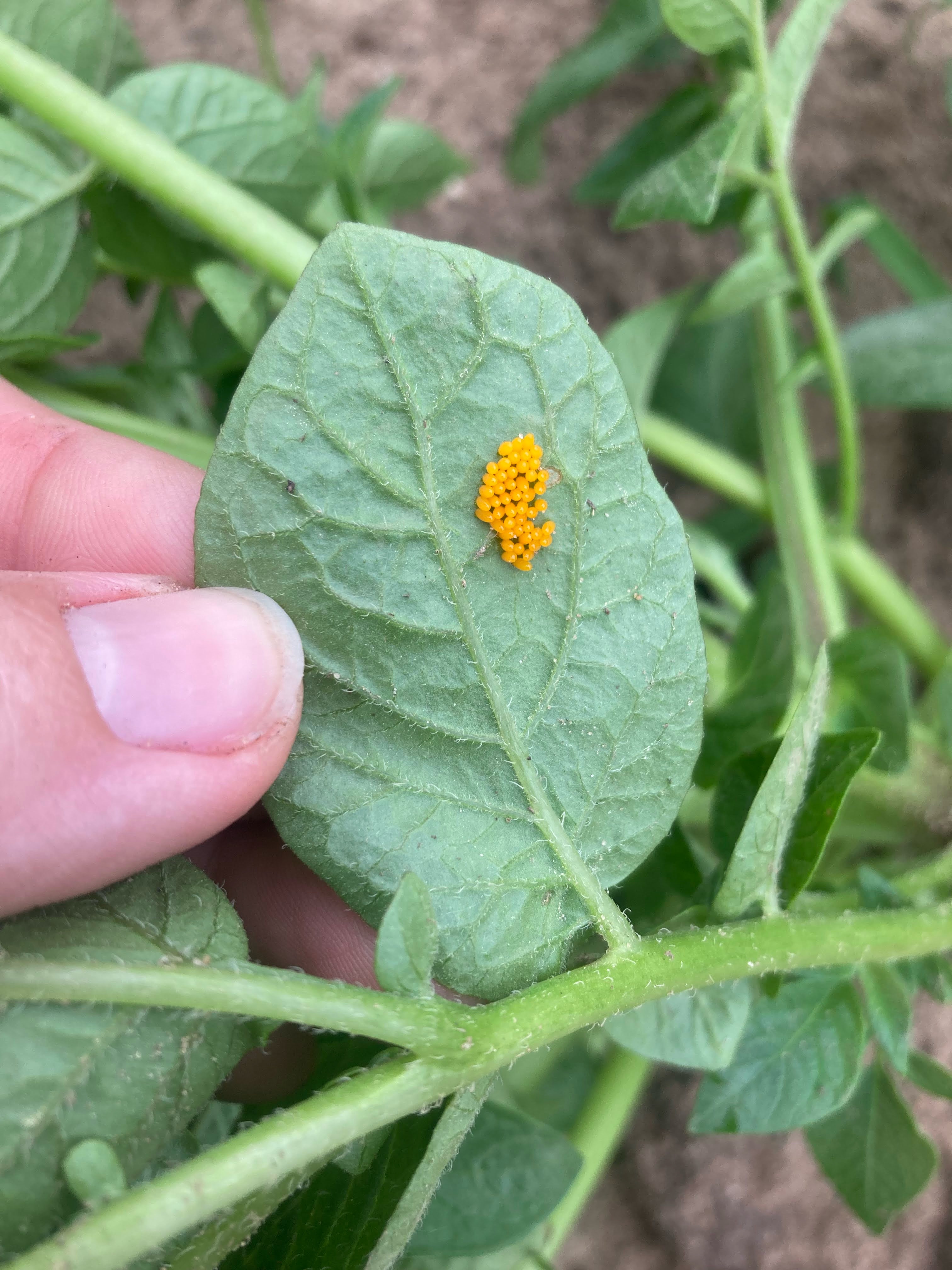
Alfalfa cutting should commence as soon as possible for the highest quality hay (such as for dairies) according to the Enviroweather alfalfa cutting model. Wet fields and scattered showers may make that difficult. Cutting would also control alfalfa weevil, although in most of southwest Michigan, it is mostly under control now. Many producers sprayed for it this year, as it reached thresholds in some locations before the alfalfa was tall enough to cut.
Black cutworm moths are present in the state. Bucket traps in Berrien County near Berrien Springs, Michigan, and St. Joseph County have caught the following:
|
Date |
Berrien |
Centreville |
Sturgis |
|
4/8 |
0 |
2 |
1 |
|
4/15 |
0 |
12 |
4 |
|
4/22 |
0 |
16 |
3 |
|
4/29 |
4 |
10 |
3 |
|
5/6 |
5 |
46 |
0 |
|
5/13 |
8 |
25 |
0 |
True armyworm moths are present in the state. Bucket traps in Berrien County near Berrien Springs and St. Joseph County have caught the following:
|
Date |
Berrien |
Centreville |
Sturgis |
|
4/8 |
0 |
0 |
0 |
|
4/15 |
1 |
0 |
0 |
|
4/22 |
0 |
0 |
14 |
|
4/29 |
0 |
0 |
20 |
|
5/6 |
0 |
0 |
14 |
|
5/13 |
4 |
0 |
7 |
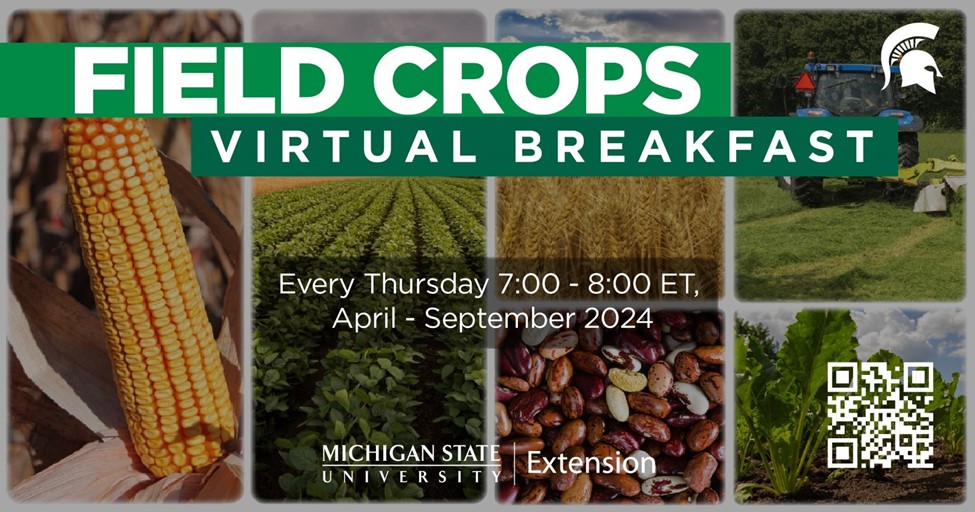.jpg)
Post-emergence weed control, presented by Michigan State University (MSU) Extension weed specialist Erin Burns, was the topic for the MSU Extension Field Crops Virtual Breakfast this week. She highlighted that treating weeds in corn should be dependent on the height of the weed and the stage of the corn in order to maintain yield potential. The 2024 Weed Control Guide has several tables with information about what product can be applied at which growth stage and product efficacy on different weeds. A weed field day is coming up on June 26.
Recordings of this and all the Virtual Breakfast meetings are closed-captioned and available at the Field Crops Virtual Breakfast webpage and the MSU Extension field crops team social media platforms: Facebook, Spotify, YouTube, Apple Podcasts and Twitter.



 Print
Print Email
Email



